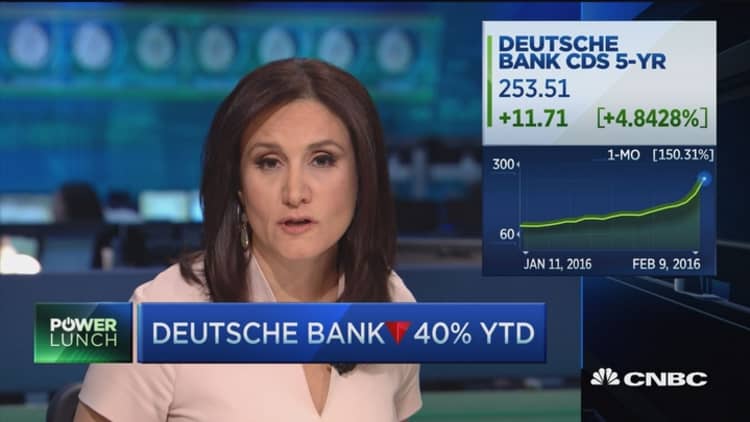
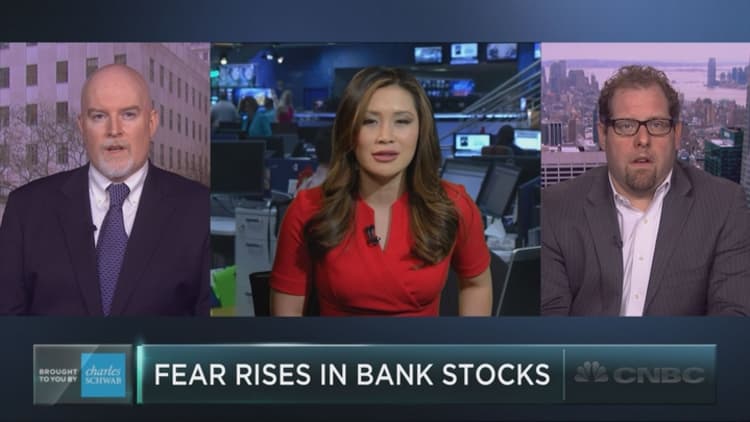
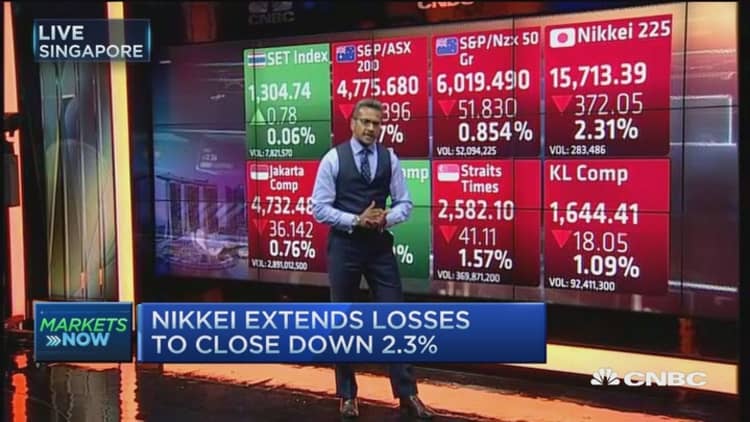
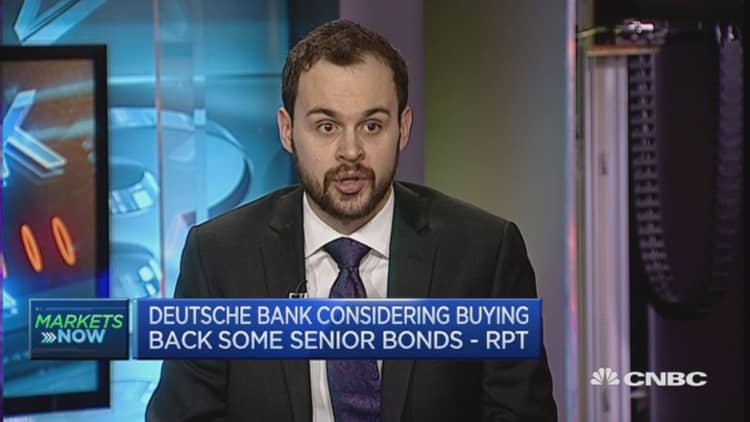
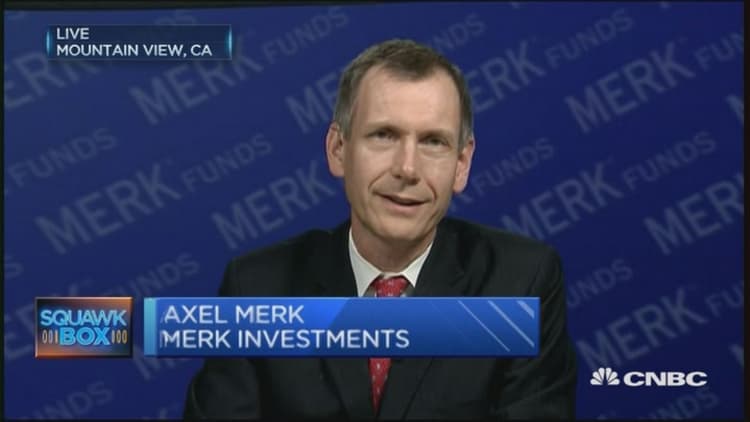
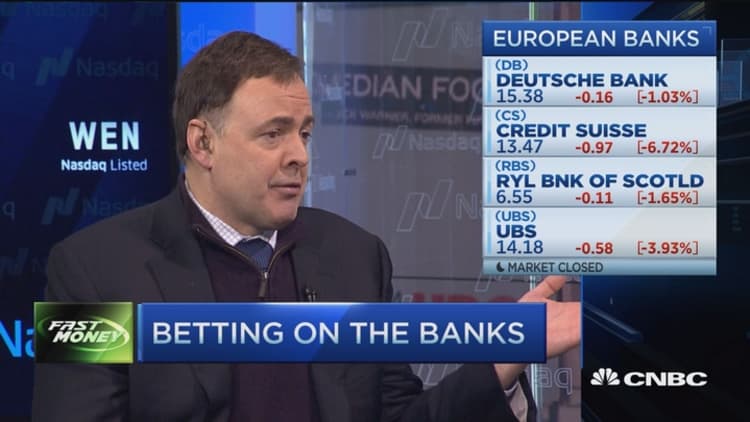
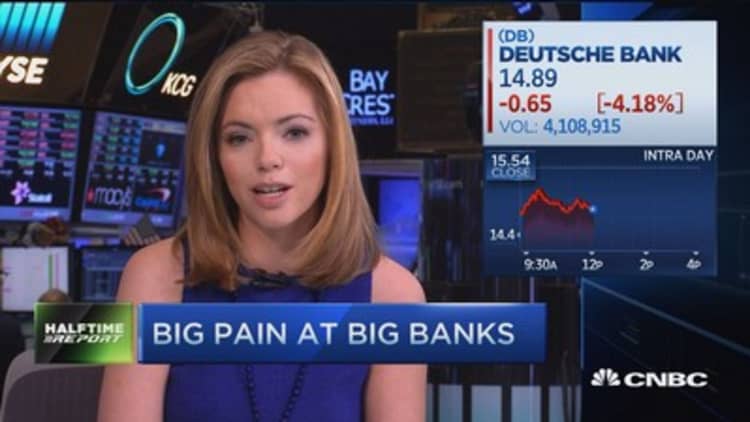
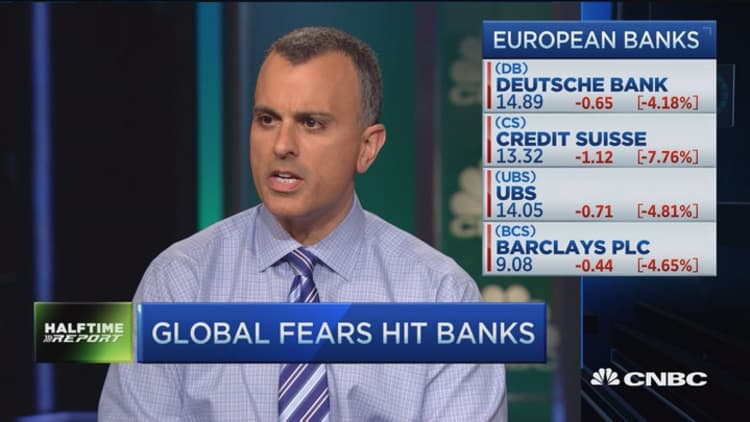
It's been a rocky few weeks for European banks, which have lost nearly one-quarter of their stock market value since the start of the year. Investors are worried about lenders' high debt piles and exposure to the struggling energy sector and to China, amid global market turmoil.
The financial and economic crisis that rocked Europe from 2008 is still fresh in people's minds. Then banks got into serious trouble by overloading their balance sheets with risky private and government debt. As a result, once the economy hit recession, they found it difficult to raise funds and, in some cases, fill their cash machines.
As a result of the crisis, European authorities have strived since then to improve how lenders are supervised and, should they fail, how they are either wound down or rescued.
However, some of the plans are yet to be instituted, and there is fierce debate about how much power member countries should hand over to authorities in Brussels and whether supervision will hamper banks' profitability.
CNBC takes a look at what measures the euro zone has in place to stop banking systems in its 19 member countries going to the wall.
Resolving failing banks
The Single Resolution Mechanism was established after the euro zone's debt and bank crisis with the aim that in the future, failing banks would be resolved (liquidated in an orderly way) at the lowest cost and impact to tax payers.
All euro zone countries are required to participate but it is unknown whether it will be successful as it only became fully operation in January this year.
Under the plan, bank resolution could include participation by unsecured depositors or junior creditors. There will also be a bailout fund that will be built up over eight years through contributions from the banking industry.
Enhanced supervision
The Single Supervisory Mechanism means the European Central Bank is now responsible for approximately 6,000 banks across the euro zone. The aim is to ensure that banks comply with Europe-wide banking rules and tackle problems early on.
The central bank directly supervises the 129 largest banks — those like Deutsche Bank, BNP Paribas and ING that are viewed as linchpins to the entire euro zone financial system — and allows national supervisors to monitor smaller banks.
The central bank cooperates with the European Banking Authority (EBA) in conducting "stress tests" on systemically important banks -- including those in European Union countries that do not use the euro.
This year's test is expected to launch at the end of February and will assess banks' ability to meet required capital ratios in the event of an economic shock. It will include 53 banks in the European Union, amounting to around 70 percent of the area's banking sector.
The EBA's last stress test took place in 2014 and was criticized by some for being insufficiently tough. Around 25 banks out of 123 failed, including the National Bank of Greece, Belgium's Dexia and Banco Popolare in Italy.
Insurance scheme
European officials plan to introduce further measures to protect bank depositors. In November, a pan-euro zone scheme similar to that of the U.S.'s Federal Deposit Insurance Corporation was proposed, with the aim of safeguarding bank deposits of up to 100,000 euros ($112,502).
However, Germany has opposed the introduction of the scheme, saying it does not want its depositors to be liable for bank payouts in other countries until financial risks have been minimized across the area. There are also fears that such a fund would encourage banks to feel they can take greater risks than they would if there was no such safety net in place.
"One wonders whether compromising the integrity of more robust banking systems by linking them together with weaker ones is the right way to go… such pooling of insurance — like any mutualisation of risks — creates a moral hazard problem," Diego Zuluaga, a research fellow at the U.K.'s Institute of Economic Affairs, said in a blog post after the scheme was announced.
If and when the scheme comes to fruition, the scheme will be obligatory for euro zone countries and optional for countries like the U.K. that do not use the euro but are part of the European Union.





